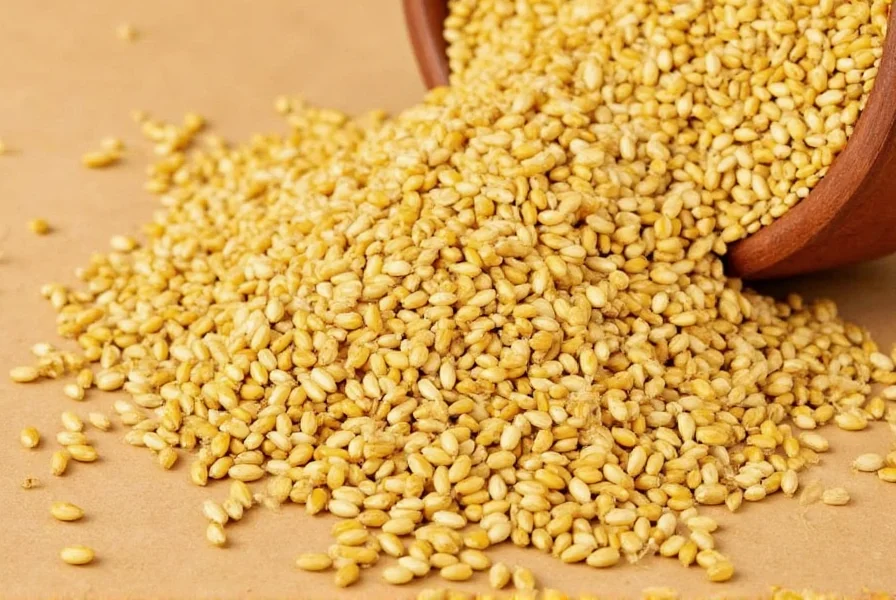Fenugreek has been used for centuries in traditional medicine systems across the Middle East, India, and North Africa. Today, this versatile legume seed has gained significant attention in the supplement industry for its potential health benefits. As a dietary supplement, fenugreek primarily comes in seed powder, capsule, or standardized extract forms, each offering different concentrations of active compounds like diosgenin and 4-hydroxyisoleucine.
Scientifically Supported Benefits of Fenugreek Supplements
Multiple clinical studies have investigated fenugreek's therapeutic potential, with the strongest evidence supporting specific applications:
| Benefit Area | Research Evidence | Recommended Dosage |
|---|---|---|
| Blood Sugar Control | Multiple studies show 13-27% reduction in fasting blood glucose in type 2 diabetes patients | 500-1,000 mg standardized extract twice daily |
| Lactation Support | Clinical trials demonstrate 53-121% increase in milk production within 72 hours | 580-610 mg capsules three times daily |
| Testosterone Levels | Some studies show modest increases in free testosterone (about 25%) in men | 500 mg standardized extract twice daily |
| Appetite Control | Limited evidence suggests fiber content may promote satiety | Variable, typically 1-2 g before meals |
The blood sugar management benefits of fenugreek supplements for type 2 diabetes represent one of the most well-documented applications. A 2020 meta-analysis published in Nutrition Reviews examined 12 clinical trials and concluded that fenugreek significantly reduced fasting blood glucose and HbA1c levels compared to placebo. The mechanism appears related to delayed carbohydrate absorption and improved insulin sensitivity.
Understanding Fenugreek Supplement Forms and Dosages
Not all fenugreek supplements deliver equal benefits. Understanding the different forms helps consumers make informed choices:
- Fenugreek seed powder: Contains the whole ground seed with natural fiber content. Requires higher doses (3-5 grams) but provides additional nutritional benefits
- Standardized extracts: Concentrated forms containing specific percentages of active compounds (typically 50% furostanolic saponins). More potent at lower doses (500-1,000 mg)
- Fenugreek tea: Traditional preparation with milder effects, suitable for general wellness rather than therapeutic applications
- Galactagogue blends: Formulations specifically designed for lactation support, often combined with blessed thistle and alfalfa
When determining how much fenugreek should I take daily, consider your specific health goals. For blood sugar management, research supports 1,000-2,000 mg of standardized extract divided into two doses. Lactation support typically requires 1,740-1,830 mg daily of specific formulations. Always start with the lowest effective dose and monitor your body's response.

Safety Profile and Potential Side Effects
Fenugreek is generally well-tolerated when used appropriately, but understanding potential side effects and interactions is crucial for safe supplementation. Common fenugreek side effects include:
- Mild gastrointestinal discomfort (bloating, gas, diarrhea)
- Maple syrup-like body odor (due to sotolone compound)
- Lowered blood sugar levels (requires monitoring for diabetes patients)
- Possible allergic reactions in individuals sensitive to legumes
Is fenugreek safe for long term use? Current research suggests moderate-term use (up to 6 months) is generally safe for most adults, but long-term safety data remains limited. Special precautions apply for certain populations:
- Pregnant women should avoid therapeutic doses due to potential uterine stimulation
- Individuals taking blood thinners should consult a healthcare provider due to possible interactions
- People with peanut or chickpea allergies may experience cross-reactivity
- Those scheduled for surgery should discontinue use at least two weeks beforehand
Evaluating Quality When Choosing Fenugreek Supplements
The supplement industry lacks stringent regulation, making quality assessment essential. When selecting fenugreek products, consider these factors:
- Standardization: Look for products specifying the percentage of active compounds (typically 50% furostanolic saponins)
- Third-party testing: Certifications from NSF, USP, or ConsumerLab indicate independent quality verification
- Transparency: Reputable manufacturers provide clear information about sourcing and processing methods
- Formulation: For lactation support, choose products specifically formulated for this purpose with clinically studied dosages
Fenugreek seed extract vs whole seed represents an important consideration. While whole seed provides additional fiber and nutrients, standardized extracts deliver consistent concentrations of active compounds necessary for therapeutic effects. For specific health goals like blood sugar management, extracts generally provide more reliable results.

Practical Recommendations for Supplement Users
Based on current evidence, fenugreek supplementation may be appropriate for specific populations:
- Individuals with prediabetes or type 2 diabetes seeking complementary blood sugar support
- Breastfeeding mothers experiencing low milk supply
- Men looking for natural approaches to support healthy testosterone levels
- Those seeking plant-based options for general metabolic health
For optimal results with fenugreek for blood sugar control, take supplements 30 minutes before meals to maximize the delayed carbohydrate absorption effect. Those using fenugreek supplement benefits for women related to lactation should maintain consistent dosing throughout the day and stay well-hydrated.
Remember that supplements work best as part of a comprehensive health approach. Fenugreek should complement—not replace—medical treatment, healthy eating, and regular physical activity. Always consult with a healthcare provider before starting any new supplement regimen, especially if you have underlying health conditions or take medications.
What is the most effective form of fenugreek supplement?
Standardized fenugreek seed extract containing 50% furostanolic saponins appears most effective for therapeutic applications. This concentrated form delivers consistent levels of active compounds at lower doses (500-1,000 mg) compared to whole seed powder which requires 3-5 grams for similar effects. For lactation support, specific galactagogue formulations have demonstrated the best clinical results.
How long does it take for fenugreek to work for increasing milk supply?
Most breastfeeding women notice increased milk production within 24-72 hours of consistent fenugreek supplementation at recommended doses (typically 1,740-1,830 mg daily of standardized product). Maximum effects usually occur within 1-2 weeks. It's important to maintain proper hydration and frequent nursing or pumping while using fenugreek for lactation support.
Can fenugreek interact with medications?
Yes, fenugreek may interact with several medications. It can enhance the effects of diabetes medications, potentially causing hypoglycemia. It may also interact with blood thinners like warfarin due to its vitamin K content. Individuals taking sedatives should exercise caution as fenugreek may increase drowsiness. Always consult your healthcare provider before combining fenugreek supplements with prescription medications.
What are the signs I'm taking too much fenugreek?
Signs of excessive fenugreek intake include strong maple syrup body odor, digestive upset (diarrhea, nausea, gas), dizziness, and in rare cases, hypoglycemia symptoms like shakiness and confusion. Some people may develop allergic reactions including skin rash or difficulty breathing. If you experience these symptoms, reduce your dosage or discontinue use and consult a healthcare professional.
Is fenugreek safe for men to take regularly?
Research suggests fenugreek is generally safe for men when taken at recommended doses (typically 500-600 mg of standardized extract twice daily). Studies lasting up to 12 weeks have shown good tolerance with minimal side effects. However, long-term safety data beyond 6 months is limited. Men with hormone-sensitive conditions or those taking medications should consult a healthcare provider before regular use.











 浙公网安备
33010002000092号
浙公网安备
33010002000092号 浙B2-20120091-4
浙B2-20120091-4